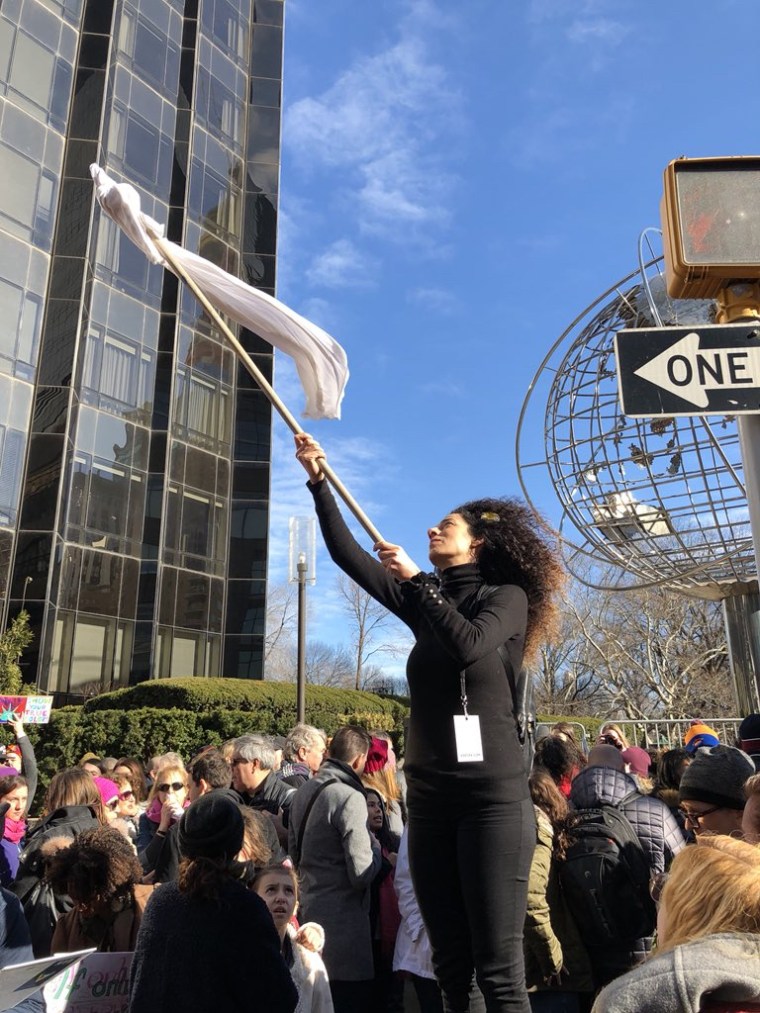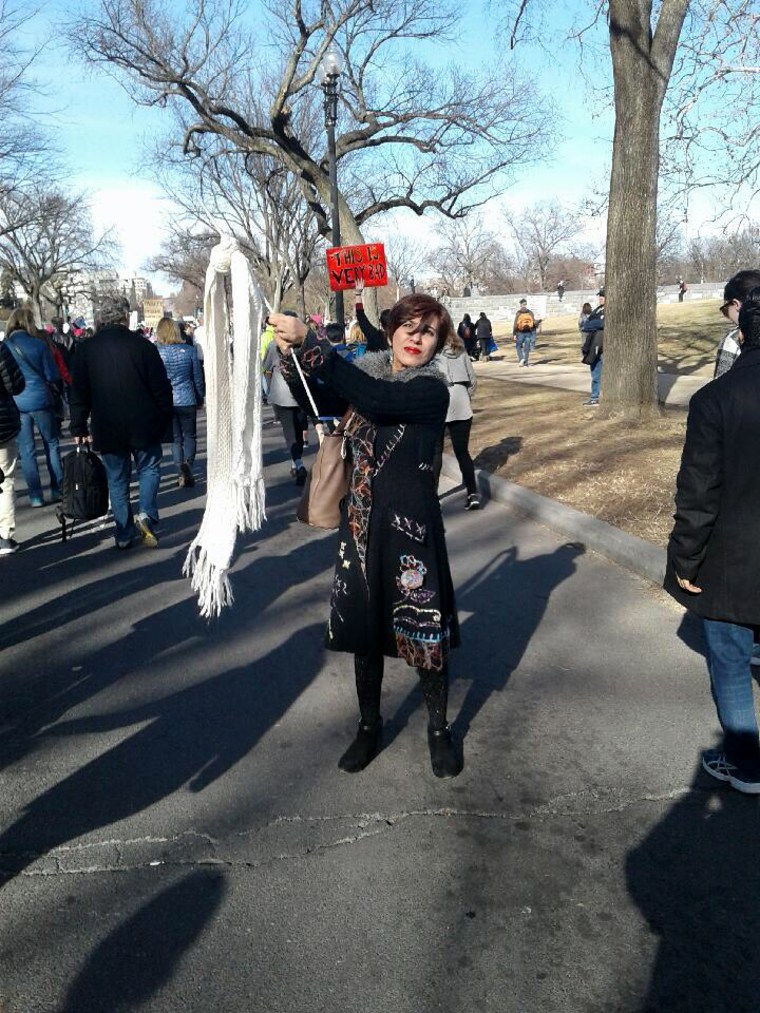As marchers across the United States took to the streets on the second anniversary of the Women's March, it had a meaning that for some went far beyond the nation’s borders.
One of the thousands of people marching in New York City on Saturday was Iranian journalist and activist Masih Alinejad, who founded the social media movement My Stealthy Freedom in 2014, which uses social media to collect images and videos of women in public without wearing hijab.

"We use our mobile phones as a weapon. We never see our real self in Iranian state media," she said. "We don't have a platform to walk about women's rights issues. We use social media as our weapon."
Last year’s re-election of President Hassan Rouhani had raised hopes of the loosening of social restrictions in general. Iran has compulsory hijab laws, and while authorities have said they would not arrest women for not properly wearing it but send them for education, many women would not dare walk in public without a hijab today.
Alinejad's White Wednesdays movement is a relatively new initiative, starting after the May 2017 reelection of Rouhani as women took to the streets waving white hijabs like flags in protest of the compulsory hijab laws.
Alinejad said she is still receiving reports of arrests for things like driving without a hijab from within the country, despite the government recently saying it wouldn't continue to enforce the rules.
Alinejad had friends across the country marching in solidarity, including 41-year-old Iranian Sepideh Jodeyri who marched in Washington, D.C.
"I am marching today because I wanted to talk about the forced hijab in Iran," Jodeyri said. "I wanted to support the movement White Wednesday. This is a march for every woman everywhere."
And people were paying attention in Iran as well. Iranian housewife Shaparak Shajari, who regularly supplies videos and photos to Alinejad described how inspiring it was to see the marches in America.
"Just knowing we have people's support in other countries is a big step for us," she said in a Telegram Messenger app conversation. "I am not good at politics but these marches, articles in newspapers, TV programs, may force the UN or other countries to put some pressure on Iran for human rights and make them give us our rights and more freedom."
Alinejad said that in Iran the hijab represents government compulsion and control, while in America it is seen as a symbol of respecting different cultures and personal freedom.

The New York City Police Department estimated the crowd at the Women's March in that city at around 200,000.
Alinejad hopes her participation in the march elevates the struggle of Iranian women who suffer inequality on many levels, with the hijab laws being one of the most visible windows into the ways that women are oppressed there.
"We want freedom of choice … In Iran the hijab is the most visible symbol of oppression," she said "We are here to be loud and condemn compulsion."
Marching Saturday, Alinejad said that the display of democracy in action was overwhelming and inspiring.
"I am crying here, envying at this freedom," she said. "My dream is to have the same freedom in my own country to protest against our government. I want my women to have the same right in my home and to march freely without getting arrested or being killed."
Alinejad said she hopes the demonstrations in the United States inspire women in Iran to assert their rights.
"The women of Iran can teach the women of the world what it is to resist," she said. "We have to stand together, we have to stick together."